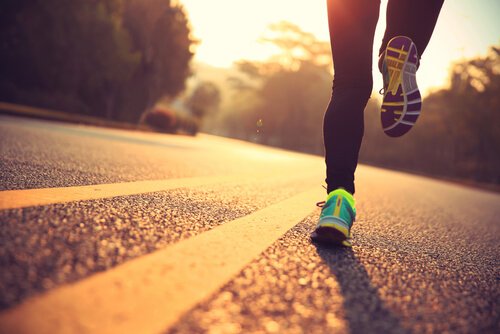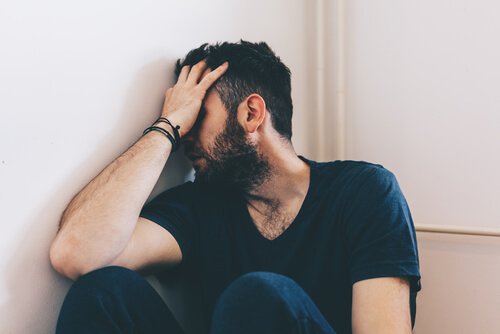Physical Exercise to Help Overcome Addiction

It’s common knowledge that exercise has many physical and mental health benefits. In addition, physical exercise can help overcome many problems, including addiction. This isn’t a hypothesis or a theory, it’s what various investigations show.
Most of the treatments for addiction include some kind of psychotherapy. They’re centered on helping the addict identify why they continue their addictive behavior. They also propose more effective ways to manage emotions that lie behind their addictive behavior.
These treatments are useful for many people with addictions. However, others need an approach that helps them with their physical aspects along with their mental ones. Many find that physical exercise helps control cravings.
Nowadays, experts recognize exercise as an effective self-help tool for people who want to recover from addiction. However, until recently, the effects of this treatment were unknown. In this article, we’ll discuss the effects of physical exercise to overcome addiction.
Physical exercise helps overcome addiction
When someone tries to break free from addiction, the mind and the body crave the substance that provides endorphins and gives them their “high”. If we add the stress of everyday life, the mix can be unbearable. Vigorous physical exercise also supplies endorphins. This gives a sensation of euphoria similar to the one the chemical addictive product gives.

Although the feeling can be less intense than that of drugs and alcohol, the effects of doing physical exercise can be pleasant both mentally and physically. In fact, a study on patients who had undergone treatment for substance abuse showed that exercise can give a sense of achievement and encourage the patient to stay clean.
Moreover, it’s normal for people to feel anxious or depressed when abstaining from their addiction. But exercise can promote a healthy life free from addiction. For that matter, exercise has proven to have the following effects:
- Reduces cravings and substance use.
- Decreases the effectiveness of drugs, along with the susceptibility to abuse them.
- Restores damaged brain cells due to drug use.
- Produces a neurological reward system and raises self-esteem.
- Reduces anxiety and stress.
- Promotes better sleep.
- Improves the thought process and provides a positive perspective.
- Fills that empty feeling with structure and routine.
- Serves as an alternative constructive coping mechanism.
Physical exercise can help overcome addiction thanks to its many physical and emotional benefits.
Why does physical exercise help overcome addiction?
The reason physical exercise has such significant effects on the body and mind is directly related to its benefits. This is due to the fact that exercise helps to lose and manage weight and have more energy and muscular strength. It also improves circulation, self-esteem, and mood, reducing depression and anxiety, all while increasing mental sharpness.
A study published in the Scandinavian Journal of Public Health supports this idea. This study found that people who included exercise in their rehabilitation programs reported having better ingestion of medicine and quality of life. Participants said that they felt more energetic, could breathe better, and felt better about their appearance.
Exercise to overcome abstinence
Abstinence is an unpleasant experience that arises when we interrupt the use of an addictive substance. Some of those substances may be drugs or specific addictive behaviors, such as gambling, compulsive sex, or excessive eating.
Symptoms of abstinence may vary in intensity depending on the person and the substance. However, a symptom common in all cases of abstinence syndrome is the craving for the substance or behavior. Another common symptom is the feeling of relief once they consume the substance.

Depression and despair are common feelings during abstinence. This may come along with anxiety, irritability, anger, and digestive problems. They might also experience nervous system symptoms like sweating, dry mouth or over-salivation, headaches, and muscular tension.
Studies have repeatedly proven that exercise reduces stress, anxiety, and depression. Since these are the main symptoms of abstinence, experts suggest that exercise can relieve them.
Physical exercise helps overcome addiction and also relieves the symptoms of abstinence.
This text is provided for informational purposes only and does not replace consultation with a professional. If in doubt, consult your specialist.








